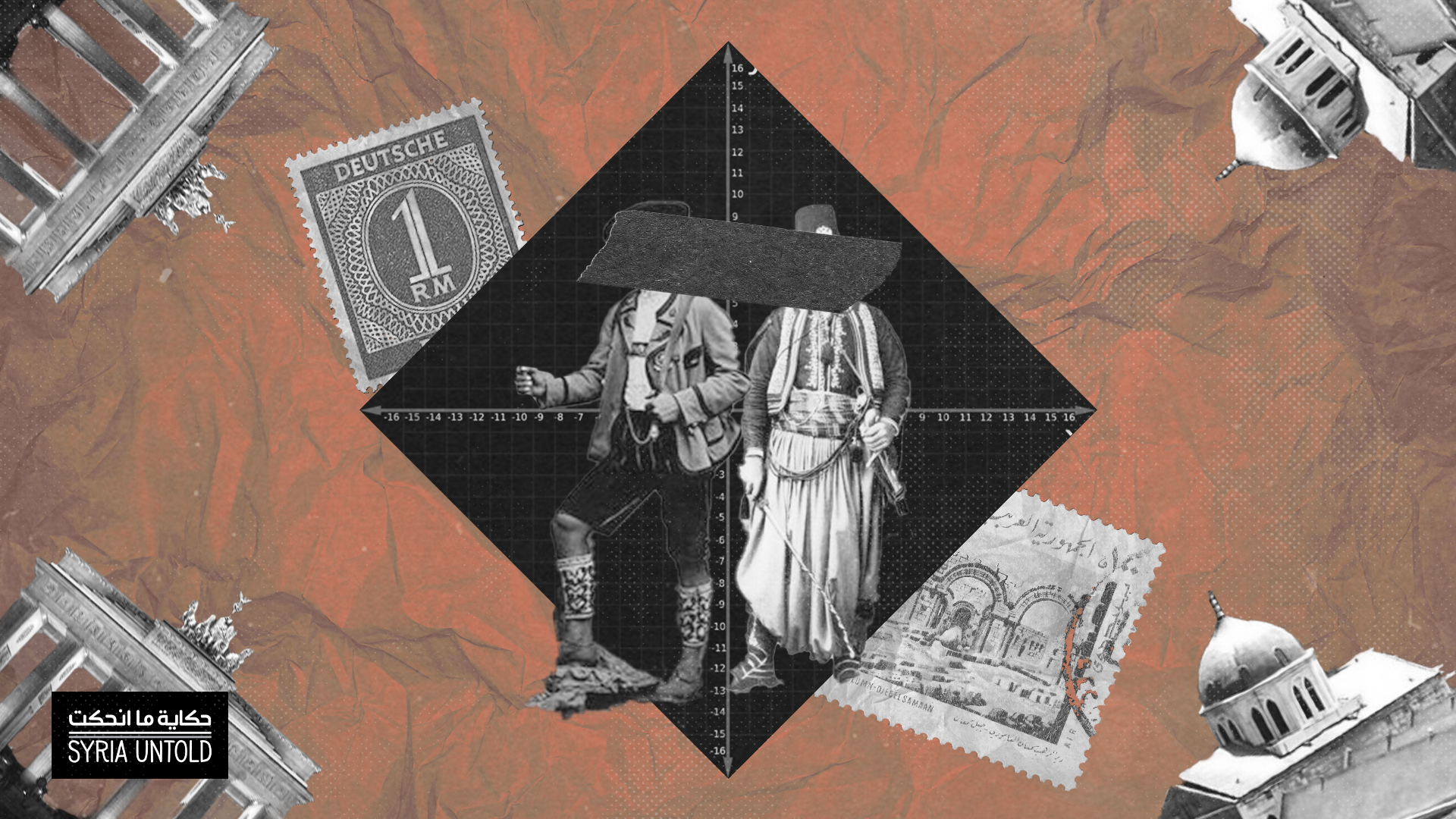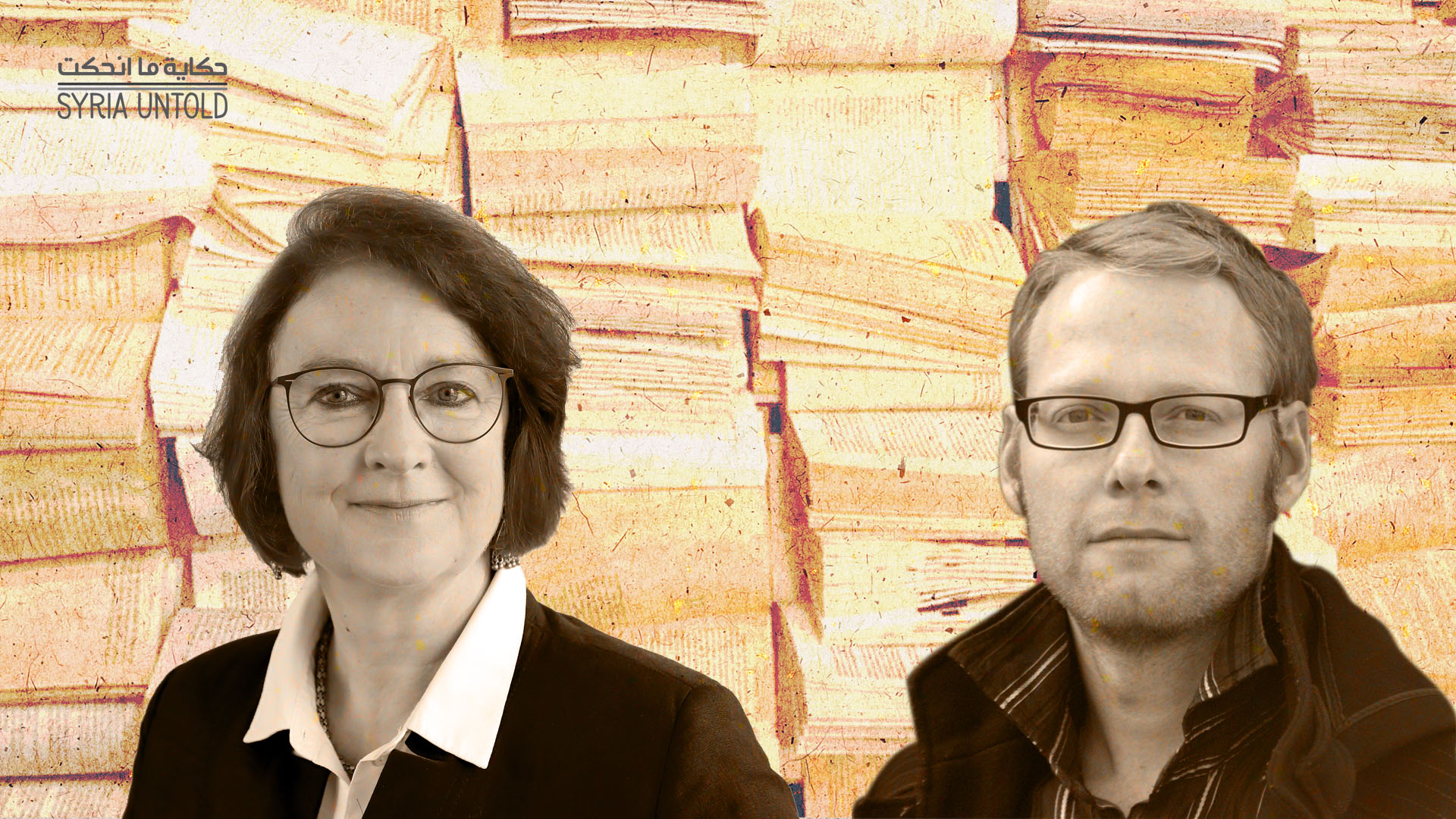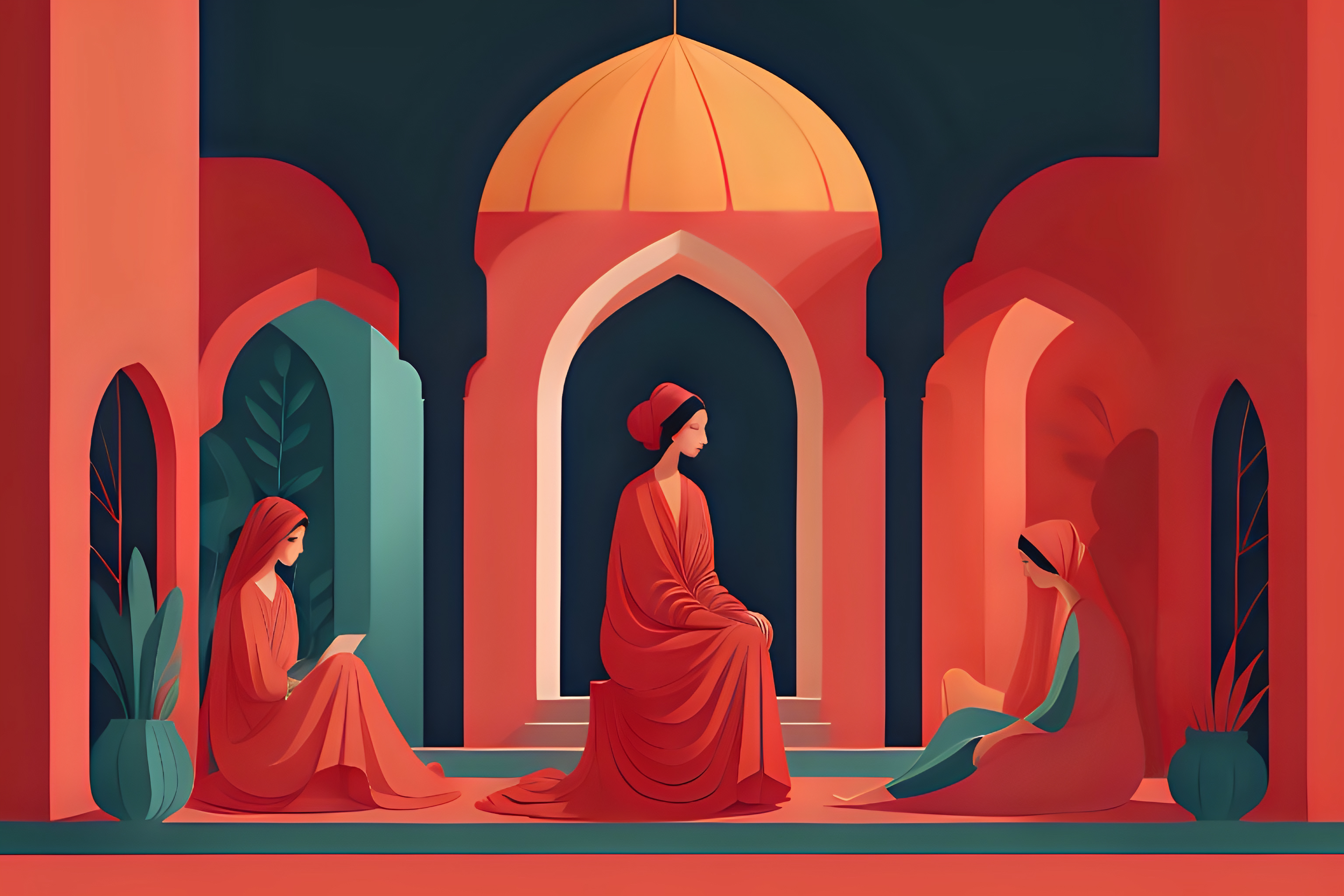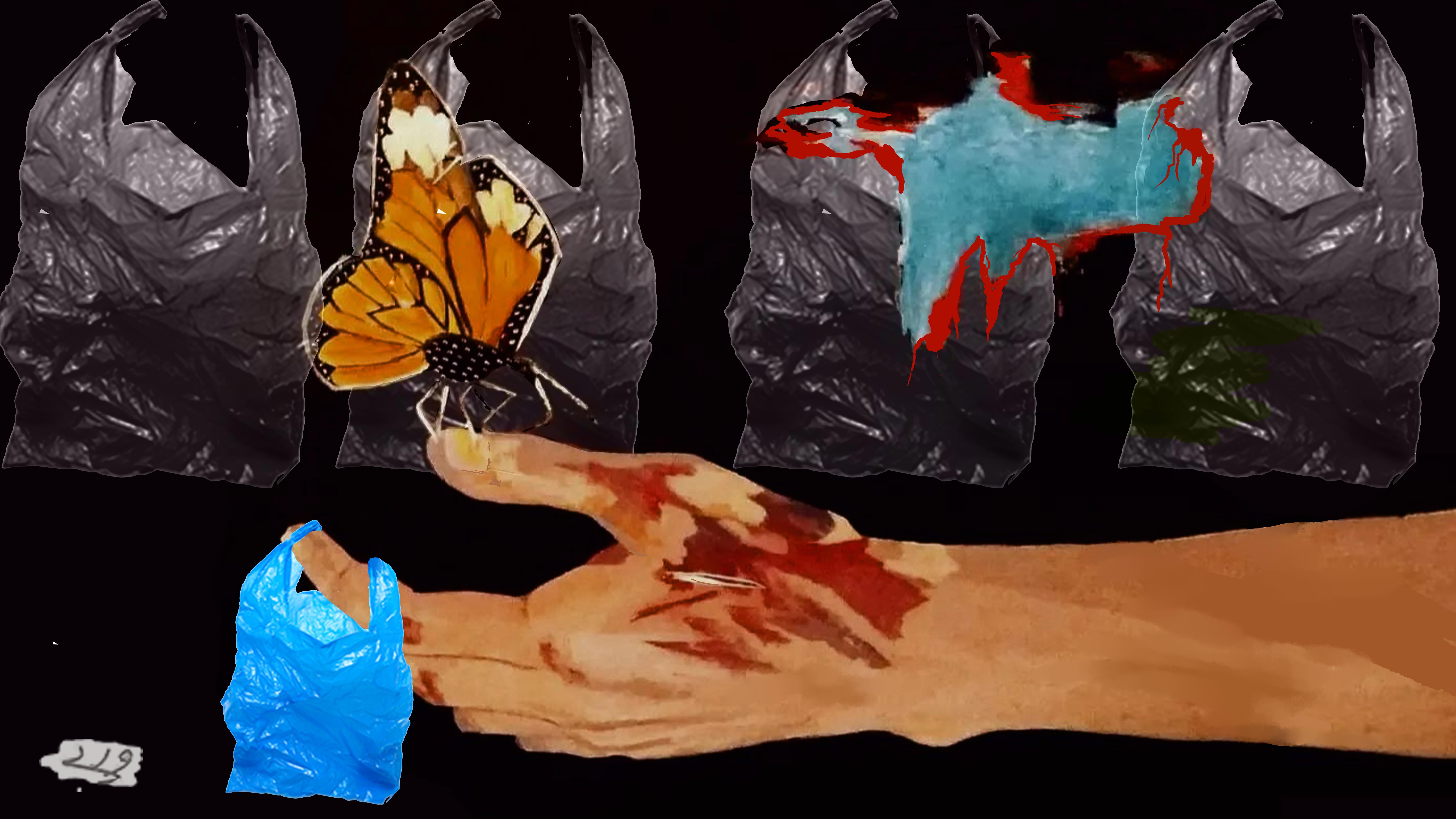How do you defend a place that most people around you hate? And what are you defending in the first place? Is it only a dream about that place in your head? Or is it your cowardice in giving up on that dream?
The Arrivals
In summer, migrant friends return with (foreign) citizenships and residencies, seemingly one step ahead of you on various paths—be it academic, financial, linguistic, or in the realms of political and social change, and civil society management. Regardless, they can tell you about reality, and how things should be where you are. With eloquence, they adorn their criticisms with words of sympathy, summarizing your daily struggles with phrases like "May God be with you".
They might share tales of their adventures in your city, recounting experiences such as one friend's visit to Jaramana, likening it to 'the savannah,' or anecdotes about encounters with exploitative employees in government institutions. They might even comment on how things appear more acceptable in reality compared to the descriptions exchanged in virtual conversations, hinting at an unjustified exaggeration.
They quickly pivot to topics that will dominate the conversation—as they have the newest challenges: struggles with Western bureaucracy, experiences of racism, feelings of longing for family, and other difficulties. These stories engulf you with a sense of injustice as if your own problems have diminished in comparison. Suddenly, your own struggles feel mundane and trivial, while theirs seem more complex and deserving of sympathy. This prompts introspection: What have you done to avoid suffering like theirs? What have you endured to escape your own miserable circumstances? These questions upend your logic, like when someone asks: 'Have you ever thought about leaving here?'—a veiled reproach, implicitly asking why you subjected yourself to this. Your own problems loom large not because of inconveniences like power outages or crowded transportation, but because of a deep-seated feeling that you are somehow to blame. Do you see?
The Departed
At airports, you encounter returning diaspora members, weary and in disbelief that their journey has led them to endure unbearable heat or face exorbitant prices. Visitors compare prices, taken aback by their proximity to global standards, sympathizing with those earning low incomes, and attributing their exploitation solely to the fact that they live abroad. You also encounter individuals embarking on a journey of no return, young men escaping military service, saddened by exile and separation from family, yet hopeful for access to electricity and decent job opportunities. You reflect on the mothers, lovers, and lone friends left behind, kept comforted by their families in the homeland while their friends depart.
Thoughts on exile in Germany
17 July 2021
Your friends abroad describe their visits to the country. The word "misery" is repeated in describing them, and you imagine people on Thawra Street in central Damascus, appearing at three in the afternoon on a cold winter day, in gray clothes and mud-covered shoes. It seems as if you borrowed the image from Victor Hugo's novel "Les Misérables." But you know they speak about poverty, not sadness.
You look at the faces of elderly white Europeans, with stern expressions, walking slowly as if you see them looking down on others. You think of migrants there, especially young people, happy about something. You remember images of university students here, fashion followers, in groups, girls, and boys, laughing in crowded transportation, tired and determined, but over something that seems futile to you. Travel. Is it misery or poverty that the fresh eyes see? You remember your friends' stories from visiting Al-Mazza 86 or Al-Tabalah. They call them belts of misery with all seriousness. You think about the openness of the grocers there, how does one exercise cultural dominance? You just give names and descriptions to others, so you trap them in defending their status that you chose.
You ask yourself, trying to answer honestly: What is the difference between here and there? Salaries are higher, but life can drain them, and people there complain about postponing life until after retirement. Does the difference come from satisfaction with the choice of place (the better one)? From its cleanliness? From the touch of the hand for everything in order, leaving everything to any messing hand? From respect for the law?
Here are more serious questions: Can you compare how we skip queues and our avoidance of governmental institutions' paperwork by bribing with what the laws impose there? But complaints about bureaucracy and embassy curses continue to recur in friends' conversations as if this admiration for the rule of law lacks some scrutiny. Honestly, the issue lies in security concerns, in the possibilities of arrest and imposing fines, but visitors get stuck with you here in the irony of accepting all this once again, aware of ways to avoid it skillfully acquired since childhood.
The country becomes strange for some, and those “wanted” who cannot return ask me: "How do you tolerate those phenomena?" Your brain conjures up images, barriers, and areas that have become ruins. You think about how some of them have accompanied you throughout your life, so you got used to them, and some are the result of what happened, so you bear responsibility for them. How do you divert your eyes from them stubbornly? Logic seems very far away. Logic seems so distant there, leaving you feeling like the only masochist, enjoying seeing the tyrants frolic perhaps. You think of the fear you have experienced at times in this country and condemn yourself for questioning death. We all have the right to fight it and choose an appropriate way for our existence, but condemning your way seems final and pushes you into the corner of accusations without knowing. You shake your head, looking for a real battle to engage in: Why are you truly here?
The resident
You seem crazy to those around you. "Who would come back after leaving?" You tactfully avoid bringing up the topic in front of those struggling to find a way out. Engaging in discussions with newfound enthusiasts of politics and public affairs, you appear dreamy, romanticizing privileges that shield you from reality. How can staying become an integral part of finding a solution? How can each attempt be your simple daily pursuit of life, comparing changes and following theories to understand reality and anticipate it by just one step? Your passion resonates with your friends there, as they tell you that you bring back to them the charm of moments they lived before a decade passed. But you are alone, dragging your feet to airports that lose you in their scents before you even reach the dust of your country, so you distance yourself from the illusion, from finding a common ground to work together, for your fatigue and preoccupation. Time passes over places and over us, and now we must find strength and the future of our children.
What did exile change in our narratives?
26 January 2021
You gaze at your child and recall everyone around you—those who proudly declare they won't have children in this country, and others content with their asylum status for the sake of the future they promise their children. You reflect on the myriad of social media posts expressing disdain for your homeland, repeatedly rejecting your fondness for Fairouz on some mornings. Yes, Fairouz... Imagine! Despite the inundation of clichés, you still cherish Fairouz's voice drifting from the neighbors' house along with the aroma of coffee, sometimes finding yourself mimicking them. You still take pleasure in placing a jasmine flower in your mouth, reminiscent of your childhood days and the taste of kindness. You still harbor the desire to name your daughter Sham (Damascus), yet you fear the inevitable comments that would dampen your joy.
From the dirty cement walls at Victoria Bridge, you know you have always been harsh on this place and called it ugly when others praised it. Yes, you did this repeatedly and ridiculed the locals with others who struggled to find acceptance in the capital. However, today you find yourself softening towards it all, perhaps due to the wisdom that comes with age, urging us to respect our elders and their insights in ways we weren't accustomed to. You now take delight in your mother's tales of gatherings for 'Salat al-Nabi,' which she always attends, and in your father's well-worn stories of what once stood on this street, and his dismissal of the hierarchy of people and places.
You see for yourself how the building of Yalbugha, which remained a foundation throughout your life, turns into an expensive place that you would think twice before entering. You wish for the fate of Masar’s Rose (a building managed by the Syrian Trust for Development, construction began around 2000 and stopped in 2011) to keep it as Yalbugha was. You reminisce about Al-Hijaz cafe with each floor rising from the new building in its place, and ponder the bustling new malls and the youth's craving for consumption on social media. You long for the person you used to be and wonder what led you here.
The future
You reconsider all the changes that have affected the world and haven't left us much behind. Fashion unites us more, and influencers sometimes blur the differences between us, between who stayed and who left. You hate this, but there's no escape from following it like everyone else. Your decision to remain here becomes a means to fulfill the dreams of those who left. You articulate their perspectives on the place, as they dictate the trending topics, while also shedding light on what they fail to see. You depend on their occasional financial support, leaving you adrift when those around you succumb one by one, losing their opportunities to sustain themselves with dignity, day after day. They leave. The story repeats to distance one generation from another. Some return, cursing the place, and the rest stay with you out of a sense of loss, making the place a big club for failures and latecomers. Do you realize which club you've joined?
You decide that you don't want to go back again, every time. Embassy appointments embarrass you with requests for documents, and foreigners there condemn you for stances you have become accustomed to. You contemplate your marginalized position in this world and how the harsh reality there compels you to remain silent and do what is necessary. Thus, you can only make peace with yourself by staying, and embracing what you have mastered so well until today. This silence becomes your stance, from which you draw strength to hold your ground in a world rushing around you.
You look at the teenagers who don’t know how to write properly, reading their broken words on the walls while a teenage girl gets out of a fancy car, with perfectly wavy hair and untouchable confidence.
You continue to observe, feeling your heart torn by a pain whose source eludes you. What is all this about? Oh God, what is all this about? Existence feels like a journey filled with dissatisfaction, and confining it to a place compels you to repeatedly capture mental images until one day, you can filter and summarize them for other blinded eyes, offering perhaps a sliver of solace to alleviate their pain. Then, you ponder the utility of extracting pain from this life; perhaps you are the one celebrating it unknowingly, making your way through living seem plausible and choices easier, at least. Imagine if none of us had considered leaving... What would change then?









